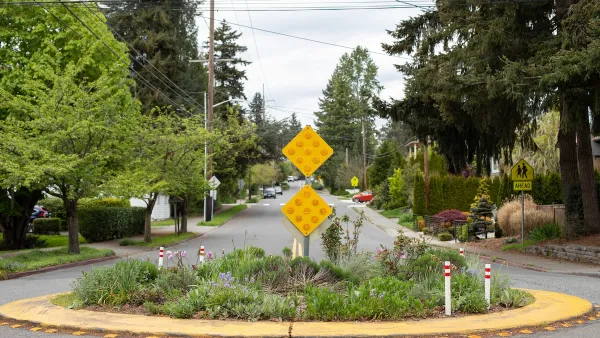Despite decades of "steady improvement", Chicago is still home to some of the dirtiest waterways in the country. Now after years of obfuscation, the city's Metropolitan Water Reclamation District is finally moving forward with cleanup plans.
Michael Hawthorne reports on the rapid change of course for the agency that handles Cook County's sewage and stormwater, after years spent challenging cleanup initiatives.
With a new executive director, David St. Pierre, in place, the District is moving forward with plans to disinfect human and industrial wastewater. It is the only major U.S. city that skips this treatment step, "largely because officials assumed nobody would want to come near rivers that carry wastewater away from Lake Michigan," according to Hawthorne.
Now, as mayor Rahm Emanuel emphasizes the importance of the city's "recreational frontiers", and others seek to use the city's waterways and redevelop properties adjacent to them, the District has agreed to upgrade its treatment plants, with a healthy nudge from the federal government.
"The Metropolitan Water Reclamation District said installing equipment to kill the germs in partially treated sewage will cost $139 million, about 7 times less than the $1 billion that top district officials once said it would require and half as much as they later argued it would take to disinfect the wastewater."
FULL STORY: No tax hike needed to clean up Chicago River, water agency says

Planetizen Federal Action Tracker
A weekly monitor of how Trump’s orders and actions are impacting planners and planning in America.

Chicago’s Ghost Rails
Just beneath the surface of the modern city lie the remnants of its expansive early 20th-century streetcar system.

Amtrak Cutting Jobs, Funding to High-Speed Rail
The agency plans to cut 10 percent of its workforce and has confirmed it will not fund new high-speed rail projects.

Ohio Forces Data Centers to Prepay for Power
Utilities are calling on states to hold data center operators responsible for new energy demands to prevent leaving consumers on the hook for their bills.

MARTA CEO Steps Down Amid Citizenship Concerns
MARTA’s board announced Thursday that its chief, who is from Canada, is resigning due to questions about his immigration status.

Silicon Valley ‘Bike Superhighway’ Awarded $14M State Grant
A Caltrans grant brings the 10-mile Central Bikeway project connecting Santa Clara and East San Jose closer to fruition.
Urban Design for Planners 1: Software Tools
This six-course series explores essential urban design concepts using open source software and equips planners with the tools they need to participate fully in the urban design process.
Planning for Universal Design
Learn the tools for implementing Universal Design in planning regulations.
Caltrans
City of Fort Worth
Mpact (founded as Rail~Volution)
City of Camden Redevelopment Agency
City of Astoria
City of Portland
City of Laramie




























